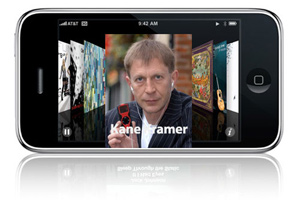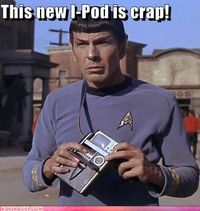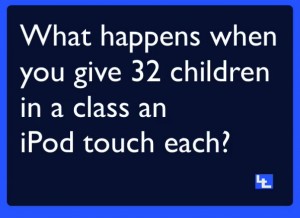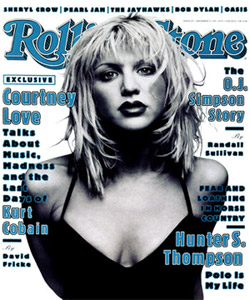iPOD
iLike iPod iTunes
 The Apple iPod is not just a music playing device. It is an icon of our digital culture. The iPod has revolutionized our listening habits. We can listen to music anywhere and everywhere – on the street, in buses and metros, while waiting in queues or performing chores. Some say this makes the iPod an alienating device? The contrary view maintains that we don’t talk to people in buses, in the metro, in shops or in most public spaces in any case and that by choosing our iPods over the ads screaming at us we now have some degree of control over how we experience our harsh urban environment.
The Apple iPod is not just a music playing device. It is an icon of our digital culture. The iPod has revolutionized our listening habits. We can listen to music anywhere and everywhere – on the street, in buses and metros, while waiting in queues or performing chores. Some say this makes the iPod an alienating device? The contrary view maintains that we don’t talk to people in buses, in the metro, in shops or in most public spaces in any case and that by choosing our iPods over the ads screaming at us we now have some degree of control over how we experience our harsh urban environment.
 The essential point about digital technology, according to the more optimistic view, is that by facilitating a global music culture, it actually leads to a better sociability. People from different parts of the world are able to get to know each other intimately by sharing their music files. Such interactions can help people access music they may never have heard before. They can browse through all these musical offerings at their leisure and develop a richer, more complex musical sensibility which will no longer be amenable to MTV-like conditioning.
The essential point about digital technology, according to the more optimistic view, is that by facilitating a global music culture, it actually leads to a better sociability. People from different parts of the world are able to get to know each other intimately by sharing their music files. Such interactions can help people access music they may never have heard before. They can browse through all these musical offerings at their leisure and develop a richer, more complex musical sensibility which will no longer be amenable to MTV-like conditioning.
The iPod’s shuffle function and its single song delivery system act as a stimulus to our creativity in unexpected ways. The shuffle function allows us to make surprise associations between different songs. It frees our imagination and opens it to random-ness. It injects the thrill of spontaneity and play into our routine everyday life. Users of the iPod can still listen to predetermined playlists. But they will be self-created and individualized.
 Downstreaming and downloading prevents the exploitation of the consumer’s love of music by recording companies. The iPod and the iTunes store also pose a major challenge to them. Napster, in 1998, was a pioneer in this regard till major labels brought a suit against it and forced its closure in 2001. Times Warner is currently trying to force Apple to build a complement into the iPod’s price structure which it wants to claim as compensation for copyright violations. But music corporations are fighting a losing battle.
Downstreaming and downloading prevents the exploitation of the consumer’s love of music by recording companies. The iPod and the iTunes store also pose a major challenge to them. Napster, in 1998, was a pioneer in this regard till major labels brought a suit against it and forced its closure in 2001. Times Warner is currently trying to force Apple to build a complement into the iPod’s price structure which it wants to claim as compensation for copyright violations. But music corporations are fighting a losing battle.
 Digital technology and the iTunes store has also made it possible for artists to create the kind of music they want to and distribute it directly to a public which is exponentially larger than what the labels offered. And they no longer need to sign away their copyrights. The following is an extract from a speech by the singer and actor Courtney Love celebrating digital technology and the hopes it has ignited in the hearts of musicians: “You funny dot-communists. Get your shit together …I want to work with people who believe in music and art and passion. And I’m just the tip of the iceberg. I’m leaving the major label system and there are hundreds of artists who are going to follow me …. In the last few years, business pulled our culture away from the idea that music is important and emotional and sacred. But new technology has brought a real opportunity for change; we can break down the old system and give musicians real freedom and choice.” 1
Digital technology and the iTunes store has also made it possible for artists to create the kind of music they want to and distribute it directly to a public which is exponentially larger than what the labels offered. And they no longer need to sign away their copyrights. The following is an extract from a speech by the singer and actor Courtney Love celebrating digital technology and the hopes it has ignited in the hearts of musicians: “You funny dot-communists. Get your shit together …I want to work with people who believe in music and art and passion. And I’m just the tip of the iceberg. I’m leaving the major label system and there are hundreds of artists who are going to follow me …. In the last few years, business pulled our culture away from the idea that music is important and emotional and sacred. But new technology has brought a real opportunity for change; we can break down the old system and give musicians real freedom and choice.” 1
iPod blog http://www.downtheavenue.com/2010/05/convenience-mobility-without-any-of-thatquality.html
1 http://www.famousquotes.me.uk/speeches/Courtney-Love/

